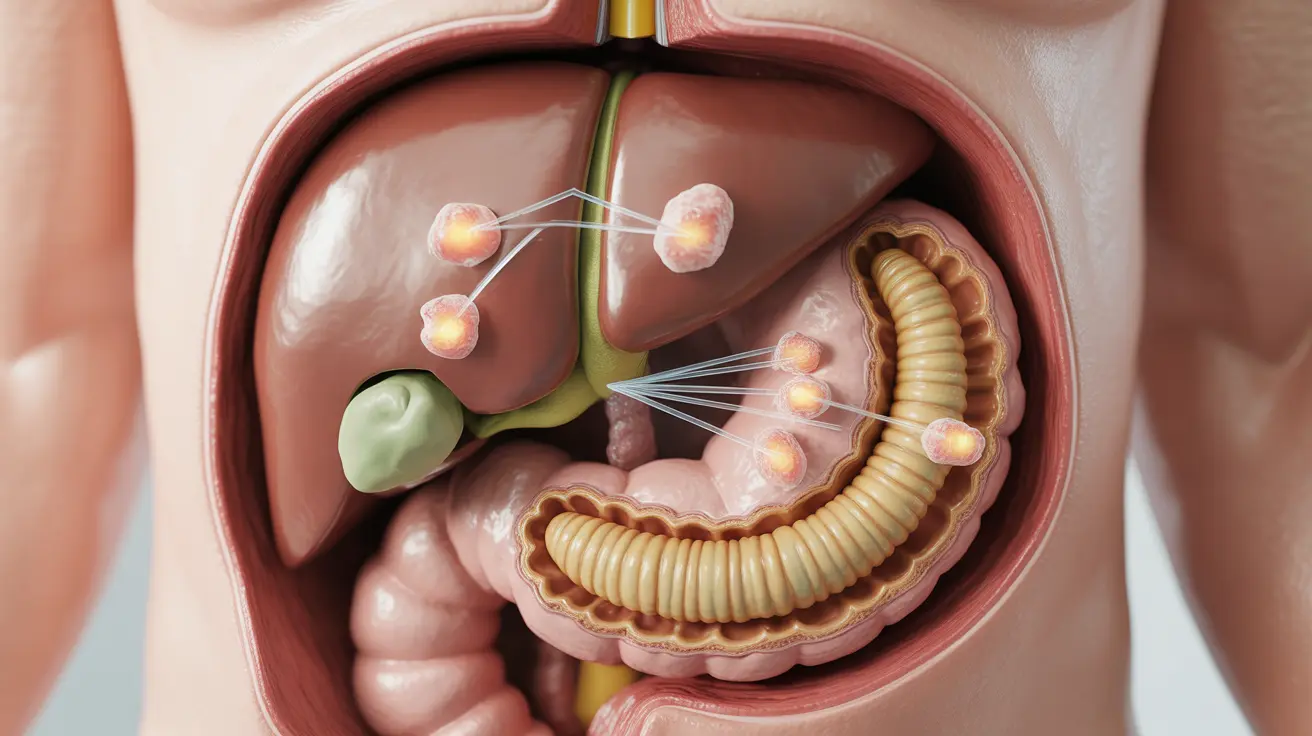While rare in developed countries, tapeworm infections can indeed become life-threatening if left untreated. These parasitic infections, which typically begin in the intestines, can sometimes spread to other organs and cause serious complications. Understanding the risks, symptoms, and treatment options is crucial for preventing severe outcomes.
How Tapeworm Infections Become Dangerous
Tapeworm infections can become deadly when the parasites spread beyond the intestines. The most serious complications occur when tapeworm larvae form cysts in vital organs, including the brain, liver, and lungs. This condition, known as cysticercosis, can lead to severe health consequences and potentially fatal outcomes if not properly treated.
Critical Complications
Some of the most dangerous complications of tapeworm infections include:
- Neurocysticercosis (brain cysts)
- Hydatid disease affecting the liver
- Organ system failure
- Severe nutritional deficiencies
- Intestinal blockage
Recognizing Tapeworm Infection Symptoms
Early detection is crucial for preventing serious complications. Initial symptoms may be mild or absent, making vigilance important, especially if you've been exposed to risk factors.
Common Warning Signs
Watch for these typical symptoms of intestinal tapeworm infection:
- Unexplained weight loss
- Abdominal pain
- Nausea and weakness
- Diarrhea or constipation
- Visible segments in stool
Advanced Symptoms
More serious symptoms indicating possible cyst formation include:
- Severe headaches
- Seizures
- Vision problems
- Confusion
- Difficulty with balance
Diagnosis and Treatment Options
Healthcare providers use various methods to diagnose tapeworm infections, including stool tests, blood tests, and imaging studies. The treatment approach depends on the type of infection and its severity.
Treatment Methods
Common treatments include:
- Oral antiparasitic medications
- Surgery for removing cysts
- Supportive care for complications
- Regular monitoring and follow-up
Prevention Strategies
Preventing tapeworm infections is crucial for avoiding potentially fatal complications. Key prevention methods include:
- Thoroughly cooking meat to safe temperatures
- Practicing proper hand hygiene
- Avoiding contaminated water sources
- Regular deworming of pets
- Careful food handling and preparation
Frequently Asked Questions
Can tapeworm infections be fatal, and how do tapeworms cause life-threatening complications?
Yes, tapeworm infections can be fatal, particularly when larvae form cysts in vital organs like the brain or liver. These cysts can cause severe damage to organ tissue, leading to life-threatening complications such as seizures, organ failure, or severe neurological problems.
What are the common symptoms that might indicate a tapeworm infection or cyst formation in organs?
Common symptoms include unexplained weight loss, abdominal pain, and digestive issues. For cyst formation, symptoms may include severe headaches, seizures, confusion, and vision problems, depending on the affected organ.
How are intestinal tapeworm infections and invasive larval cyst infections diagnosed and treated?
Diagnosis involves stool analysis, blood tests, and imaging studies like MRI or CT scans. Treatment typically includes antiparasitic medications for intestinal infections, while cyst infections may require surgery and specialized medical care.
What are the main causes and risk factors for getting a tapeworm infection in humans?
Major risk factors include consuming undercooked meat, particularly pork or fish, poor hygiene practices, and living in or traveling to areas with inadequate sanitation. Close contact with infected animals can also increase risk.
Can tapeworm infections be prevented by diet or hygiene, and what safety measures should be taken to avoid infection?
Yes, tapeworm infections can be prevented through proper food handling and hygiene practices. Key measures include thoroughly cooking meat, washing hands regularly, drinking clean water, and maintaining good personal hygiene.




